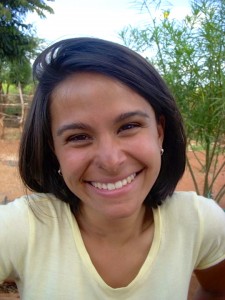
With advances in technology and information sharing, there are tremendous career opportunities for graduates with the knowledge and skills to design, collect and analyze data. To that end, the Joint Program in Survey Methodology (JPSM) at the University of Maryland offers the JPSM Junior Fellow Program, a unique summer fellowship experience for undergraduate students that provides a paid research assistantship at a federal statistical agency in Washington, DC plus advanced seminars in statistics. Policy makers base much of their policy decisions regarding health care, crime, education and the economy on the results of sample surveys and censuses, as well as administrative data systems. To create a pipeline to public service of graduates with strong quantitative skills, the JPSM Junior Fellow Program aims to educate the next generation of survey researchers, survey statisticians and survey methodologists. They found that the knowledge needed to do this important work is not held within a single academic discipline, but rather a mix of substantive fields including statistics, sociology, economics, epidemiology and psychology.
Because the field is a mix of various traditional disciplines, few undergraduates learn about this career path. Jordan Misra was one of those exceptional students who discovered the program and was inspired to apply. We caught up with Jordan to learn more about her experience.
1. What inspired you to apply for the JPSM Junior Fellows Program?
The JPSM Junior Fellows Program is particularly appealing because of its interdisciplinary nature and focus on training and education. I am looking to pursue a career in statistical policy analysis and this looked like a perfect program for me. I had previous internships with community development organizations, but none that involved statistical analysis or with the government. In order to be successful in the survey methodology field, you need to know technical programming and mathematical concepts as well as contextual knowledge about the social situations you are analyzing. The program is a unique combination of work experience, statistical seminars from prominent leaders in survey methodology and field visits to federal statistical agencies. I knew I would finish the internship with tangible accomplishments to put on my resume and new skills and personal connections.
2. What was a typical day like on the fellowship and how has the fellowship impacted your career?
It would be more accurate to describe a typical week at the fellowship. We spent two half days outside of work on field visits and attending statistical seminars at the University of Maryland. I spent the rest of the week at my internship at the Census Bureau in the Decennial Statistical Studies Division. The staff in my branch focused on evaluation of previous Census activities and theoretical research to improve 2020 Census methods. Once a week we would have several hours of branch meetings and I would attend at least one academic statistics presentation elsewhere in the Census. I spent the remainder of my time writing statistical programs in SAS to support the branch’s research projects. I enjoyed the freedom of having a research –oriented job and using statistics to develop important, wide-reaching policies. However, I will most likely look for statistical analysis positions that involve more immediate results and more social interactions.
3. What do you think made your fellowship application stand out?
My supervisor told me that I had excellent recommendations included in my application. I am also a relatively unique applicant. I had planned to double major at my previous institution, but I graduated with one major, worked for a year, and then decided to pursue a second degree at my state school due to financial issues. I am not a statistics major because I like math – I just think it’s important to analyze issues like education reform and health reform objectively and historically instead of just politically and ideologically. I am also passionate about developing solutions to pressing social issues, and that came out in my application essay. If I could give any piece of advice to an applicant who is worried that they don’t fit the prototype of a perfect applicant, it’s apply anyway. Your best attributes will shine through your application and those who are reviewing it will see your “oddities” as interesting and unique. If not, then it wasn’t the opportunity for you.
Jordan Misra is a senior at University of Maryland, College Park studying Mathematics with a concentration in Statistics and Economics. She previously studied International Development at American University with a regional concentration in Africa. She has had various internship and work experiences. While studying abroad in Nairobi, Kenya, Jordan interned with an NGO called Moraa New Hope Foundation, which supported over 60 youth groups and local businesses. She has also worked in afterschool programs in DC Public Schools for about two years, interned for an affordable housing agency in DC, and completed an AmeriCorps VISTA term with American University’s DC Reads program. Jordan is a skeptic, but an optimist. In her free time she occasionally swing dances, runs when it’s convenient, cooks, reads the news, and spends time with the best brother and sister anyone could ask for. She hopes to find a job that involves statistical analysis, traveling, working with others, and policy analysis or development.
© Victoria Johnson 2013, all rights reserved